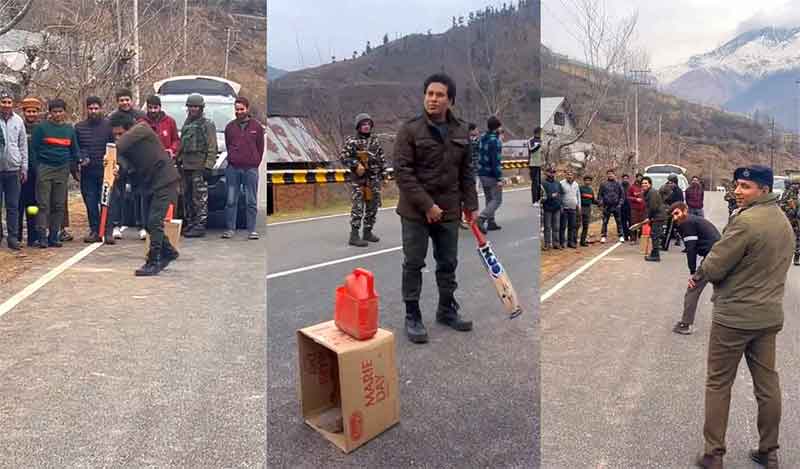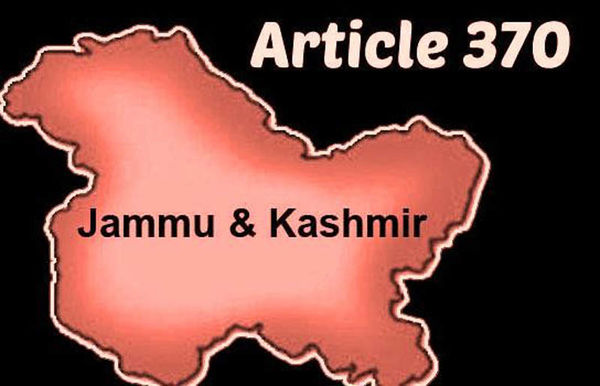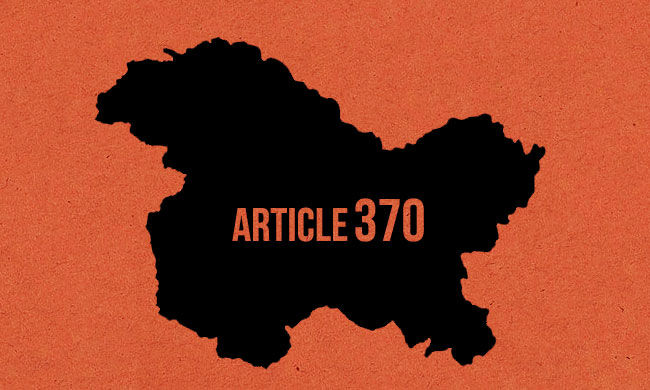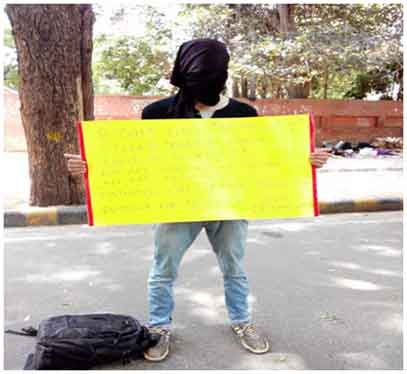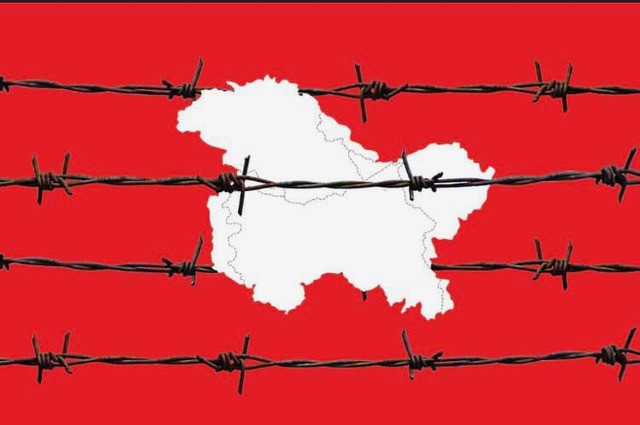
Indian government by abrogating Article 370 has put the entire population in Kashmir valley in deep pain and agony. Since October 5, 2019 the people of the valley are subjected to untold hardship and they are silently suffering the pain without any hope of redemption.
In the post Article 370 abrogation phase some uneasy questions are being asked about the future prospects of Kashmir. The quotations and answers are bunched into three categories to understand the situation that is unfolding every moment in Kashmir.
One set of question answer tries to answer the question that emanates from the ruling government’s action and try to pass the test of common wisdom. The second set pertains to Kashmiri people because they are in the eye of the storm and question answer from them is at the heart of the matter. The third set of Q&A is on extra national forces particularly Pakistan and China that have huge involvement in the Kashmir imbroglio. An honest assessment of such Q&A and alone throw the ways and means of the resolution of this beleaguered conflict.
In the wake of the events unfolding in Kashmir the Q&A put up here would be an interesting exercise to make an assessment of the ground realties even the entire Q&A are conjectural in nature.
Let’s start with the question when will the normal life be restored in Kashmir valley and when Indian Army reduces its presence in Kashmir? The answer is; given the situation on the ground in the Kashmir valley; it’s unlikely that there will be any normalcy in days to come and there no chance of troop reduction in months to come. In such case intimidation and coercion by the Indian armed forces will be the dominant theme in Kashmir. Indian Army will continue to use its armed forces special power act and there unlikely to end the shadow of the gun in Kashmir.
The other possible question; will the BJP government succeed in ameliorating the distress of the people of Kashmir? The answer is; it’s the BJP government alone that can bring any sanity to its act of madness, because it is the ruling government that by design has chosen to give distress to the people of Kashmir.
The follow up to this is, can the BJP government deliver on the promise of converting the Kashmir into a developmental paradise. The answer is; if the Indian economy continues to wither and tither as its doing today then the Kashmir promise may be play of words for the gallery. It may turn out to be empty slogan just like ‘India shinning,’ ‘Ache Din’ or even the rationales for demonetization. The fact is in wake of economic slowdown, making Kashmir a developmental paradise is nothing but empty rhetoric sans any substance into it.
Another question is; through the direct rule from the center after the abrogation of the Article 370, can the government succeed in ending terrorism in the union territory. The answer is government may be able to put a semblance of administration with the help of the Army and the Lt Governor, but through such administrative apparatus, it cannot succeed in controlling terrorism. The moment there is reduction of troops in the valley, it is likely that cycle of violence may fang again. Given the situation on the ground, no one can guarantee peace in Kashmir valley.
Related to is the question what strategy the government has in mind to wean away the Kashmiri youth to shun the path of violence? The short answer is you can take horse to the water but can’t make it drink. Even if the BJP government brings investment in Kashmir valley and is able to generate employment opportunities the youth, it is unlikely that they may forgo their sub nationalism. It would be nothing short of miracle if the BJP government can get closer to its wishful thinking that developmental parading is answer to violent resistance. Given the fact there is stiff opposition to any government plan by the local people, it is unlikely the government would succeed in weaning away the youth from the path of violence.
Now after the abrogation of Article 370 what will be the approach of Kashmiri people towards India? The answer is; its bad omen for India as there is complete alienation and hatred among the people of Kashmir against New Delhi. It is unlikely that such deep seethed anger and frustration will ever melt away from the hearts of Kashmiri people. The general narrative is, it is not Kashmiris who have let India down, but its Indian government that has let the Kashmiri people down.
Article 370 was the umbilical cord that bonded Kashmir with India. The government by cutting it out has technically freed Kashmir from its Union. Now, in the redefined relationship, India see Kashmir being as being integrated into its Union, whereas people of Kashmir view India as a colonizer, subjugator and in illegal occupation of its territory. In such situation, India will continue to assert its authority and Kashmiris will continue resist the occupation. This cycle is bound to continue till someone adheres to some wise man’s sermon one can rule with the buoyant but you cannot reign with it.
Next question is, in wake of strong arm tactics adopted by the Indian government, how susceptible will be the people of Kashmir to the narrative of revenge and violence. The answer is there is huge discontentment among the people against the Indian state and presence of large Amy in Kashmir is adding salt to their injuries. At the moment people are showing great resilience and have preferred to remain indoors and have adopted the strategy of ‘Satyagrah’ to avoid causalities, but the moment the guard is lowered, it is likely that the pent up anger of Kashmiri masses may give way to revenge and violence. In such case army may again be brought back to maintain peace and there is no respite from the cycle of violent action and reaction syndrome.
This brings the most important question how lethal can Pakistan be in coming days ahead towards its position on Kashmir? What strategy India has adopted to contain Pakistan? Pakistan Prime Minister Imran Khan has set the tone and tenure of its bellicosity towards India in his speech at the United Nation General Assembly. In its wake, it would be naïve to take Pakistan promise to shun its pledge to give India hundred cuts and stop giving covert support to terrorism. As a matter of state policy, Pakistan seems determined to embarrassing India at every global forum. With China on its side Pakistani bellicosity is bound to scale greater heights in the days to come.
India on the other hand has resolved to take on Pakistan militarily even after the shooting down of its Mig-21 Bison and surrender of its pilot. India undeterred by such setbacks is seriously thinking for hot pursuit across the border even at the cost of escalation of tension. India has reenergized its counter anti-terror operation and has achieved some success in this regard. On the diplomatic front, Indian diplomats have been tasked to blunt Pakistani verbal assaults and are asked to pay back in the same coin.
The last question in this Q&A session is the role of China in stabilizing the Kashmir situation. The answer can be prefaced by saying that the gap between India and China is the same as the gap between Pakistan and India. China which is angling for global superpower status has a huge responsibility in avoiding any military misadventure between India and Pakistan. Notwithstanding the fact that China has made its position clear on Kashmir issue much to the chagrin of India, it alone can defuse the deteriorating situation and can be an effective adjudicator to resolve the Kashmir imbroglio.
We may like it or not, Kashmir has become the biggest flash point in the world today. The fact is that after the abrogation of the Article 370, has considerably deteriorated the situation on the ground. On both sides of the border, the war mongers are having the field’s day. There is no light seen at the end of the tunnel. What is seen is both India and Pakistan is getting ready for nuclear war. Both are showing the resolve that whoever survives such war will rule Kashmir.
The forward movement in stabilizing Kashmir situation has to be taken by India. The Chinese proverb come handy here that says the one who tie the knot can only untie it. The last seventy years of India’s relationship with Kashmir is a pointer to the fact that there is no peace in Kashmir and the future trajectory too seem to point that is not in the offing in near future. A permanent peace can only happen if the solution to the problem is sought as per the wishes of the people of Kashmir.
Syed Ali Mujtaba is a journalist based in Chennai. He can be contacted at [email protected]
SIGN UP FOR COUNTERCURRENTS DAILY NEWS LETTER

